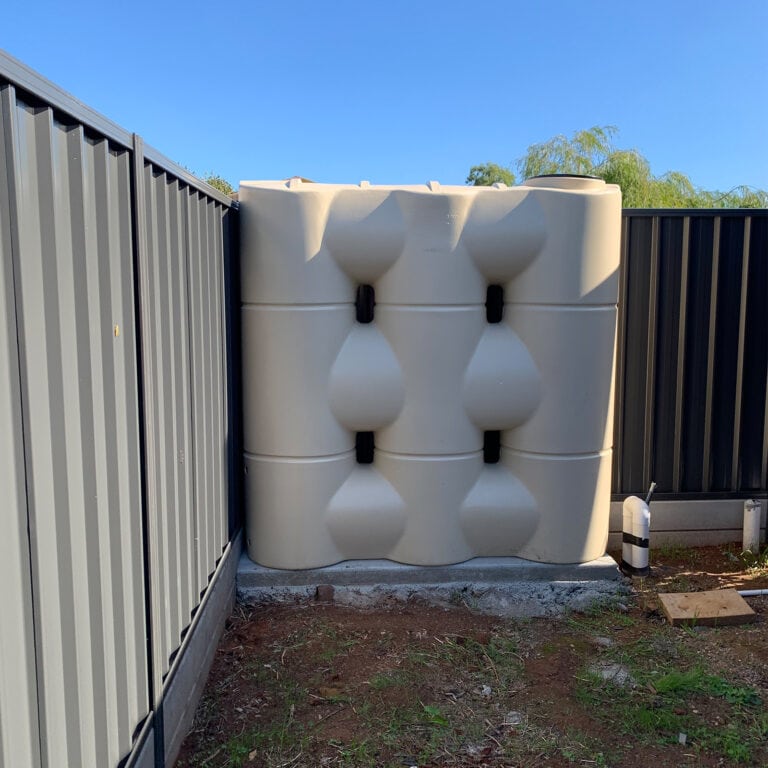Affordable Slimline Water Tanks: Maximize Your Rain Harvesting
Affordable Slimline Water Tanks: Maximize Your Rain Harvesting
Blog Article
Checking Out the Various Uses of Rainwater Containers for Residential and Commercial Residences
As the international focus on lasting living methods proceeds to intensify, the utilization of rain containers in both household and commercial settings has actually arised as a pertinent option. The complex uses of rainwater storage tanks provide a compelling situation for their fostering, not just as a functional water-saving procedure but also as a testimony to responsible source monitoring.
Advantages of Making Use Of Rainwater Tanks
Making use of rain storage tanks offers countless benefits for both homes and neighborhoods in terms of water conservation and sustainability. Among the crucial benefits of making use of rain tanks is the significant decrease in dependence on mains water system - Slimline water tanks. By capturing and saving rain for later use, individuals and communities can decrease their need for treated water, inevitably reducing the burden on water therapy centers and lowering power consumption linked with water transportation and therapy
Moreover, rainwater collecting via tanks offers a dependable alternative water resource throughout times of water constraints or scarcities. This kept rain can be used for various non-potable objectives such as irrigation, purging bathrooms, and washing clothing, reducing the pressure on conventional water sources. In addition, using rain containers can lead to cost savings for both households and areas by decreasing water costs and reducing the demand for expensive facilities growths to satisfy expanding water demands.
Basically, the application of rainwater containers offers a lasting and environmentally pleasant approach to water management, benefiting both specific customers and the wider community in regards to water conservation, cost-efficiency, and durability.
Rainwater Tank Usage in Irrigation
Provided the benefits of rain tanks in saving water sources and decreasing reliance on mains water, a significant application hinges on using saved rainwater for irrigation purposes - Slimline water tanks. Rain collecting systems can effectively gather and save rain, providing a sustainable water resource for sprinkling yards, grass, and agricultural fields. By utilizing rainwater for irrigation, residential property proprietors can minimize their dependence on cured water resources, bring about set you back financial savings and ecological advantages

One of the key advantages of making use of rain for watering is its purity. Rainwater is naturally soft and totally free from the chemicals and additives often found in keys water, making it excellent for beneficial plants without the risk of unsafe results. Furthermore, rainwater is at ambient temperature, which can benefit plant development visit by staying clear of temperature level shocks that can take place with cold mains water.
Rainwater Storage Tanks for Commode Flushing

Executing rainwater containers for toilet flushing is a cost-effective and ecologically friendly technique that can be conveniently incorporated right into both residential and business residential or commercial properties. The stored rainwater can be utilized to purge commodes by linking the container to the existing plumbing system. This easy yet effective service can substantially reduce water intake in a building, specifically in locations where water scarcity is a worry.

Incorporating Rainwater Containers in Landscape Design
An effective method for enhancing sustainability in landscaping involves integrating rainwater tanks to enhance water usage and promote eco-friendly techniques - Slimline water tanks. Integrating rainwater containers in landscape design uses various advantages for both property and business residential or commercial properties. These storage you can try here tanks can capture and keep rain overflow from roof coverings, which can after that be utilized for sprinkling yards, yards, and plants. By making use of rainwater for irrigation functions, residential property proprietors can reduce their dependence on local water resources, resulting in cost savings and conservation of priceless water resources.
In enhancement to providing a sustainable water resource for landscaping requirements, rain storage tanks can additionally help in managing stormwater drainage. By catching rainwater that would certainly or else flow right into storm drains, these containers can alleviate disintegration, minimize flooding risks, and protect against contamination of natural water bodies. Including rain storage tanks in landscaping can add to the total aesthetic charm of the home, showcasing a dedication to environmental stewardship.
Industrial Applications of Rain Tanks
Making use of rainwater tanks in commercial settings provides a lasting solution for water management and preservation, profiting businesses and the environment alike. Commercial applications of rainwater containers are varied and significantly popular due to the cost financial savings and ecological benefits they provide. One vital industrial usage is for watering objectives, where collected rainwater can be used to water landscape design, gardens, and agricultural areas bordering industrial residential properties. This can lead to considerable reductions in water expenses and dependence on metropolitan water sources.
Additionally, rain collected in storage tanks can be treated and utilized for non-potable purposes within commercial properties, such as flushing commodes, cleaning, and cooling systems. Generally, the unification resource of rain containers in industrial setups provides a practical and ecologically accountable approach to water management.
Conclusion
From irrigation to toilet flushing and landscaping, the use of rainwater storage tanks can assist conserve water sources and minimize water expenses. Overall, the convenience and sustainability of rainwater storage tanks make them a useful financial investment for any property owner looking to increase water efficiency.
Report this page